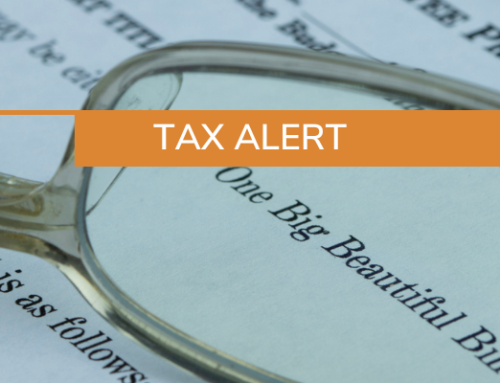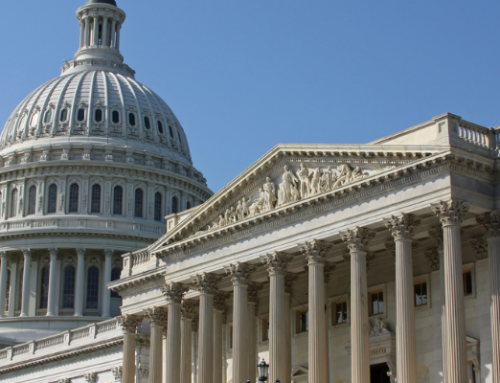Exposure to state tax has been steadily increasing in recent months. From the Wayfair Supreme Court case in 2018 to mounting financial pressures from COVID-19, states are looking at all options to collect revenue they are entitled to. More than ever, small and mid-size companies that do any type of business across state lines need to take state tax matters seriously and may need to adjust their tax planning to accommodate changes to state tax laws.
In this article:
- Impact of COVID-19 on State Budgets
- Increase of State Sales Tax Exposure from Wayfair
- Developing a Long-Term State Tax Strategy
Impact of COVID-19 on State Budgets
State budgets are suffering. The past six months of the COVID-19 pandemic have had an unprecedented budgetary impact on state coffers and the full effect isn’t even known yet. Early projections for state budgets are predicting significant shortfalls for 2020 and 2021 ranging from 10 to 20 percent. Maryland, for example, is projecting a shortfall of about five percent in 2020, 11-14 percent in 2021, and 13-20 percent in 2022. Virginia is expected to fare better, with projected budget shortfalls of under five percent for the next two years.
Not since the recession in 2008-09 have states experienced such a drastic drop in revenue. Even then, it took years for states to fully recover. On top of this, initial forecasts don’t even include the increased costs for PPE and increased demand for state services.
Less cash coming in combined with the increase in expected services means that states need to look elsewhere to balance their budgets. Rainy day funds and budgetary reserves only go so far. Cuts in services and spending are all but guaranteed. These are some of the primary measures that states will be taking to increase revenue:
- Increasing tax rates
- Broadening tax base
- Imposing new taxes
- Enforcing existing tax laws
Increasing tax rates is a well-known option, but never popular with voters. Only elected state representatives can impact changes to tax rates by introducing and passing bills, which a governor must sign to become law. The process is usually fraught with much resistance and political angst, so it is a less desirable option from the states’ perspective.
Broadening the tax base refers to applying tax to a wider universe under an already existing provision. For example, this could include increasing the goods and services subject to taxation to increase revenue from sales tax. Labor connected with repair services may not be subject to sales tax under existing law. By including labor in the tax base, a state would be able to raise substantial amounts of tax revenue. A tax or fee may only apply to transactions above a certain volume or level. These levels can be adjusted downward, subjecting more taxpayers to the tax or fee and increasing the amount assessed to those currently subject to the tax or fee. This is more probable than raising tax rates across the board.
Imposing new taxes or fees is always possible thanks to a rapidly changing economy. Digital services have been evolving in our economy at an ever-increasing pace. Many states have already subjected such services to sales tax. Several states have established a minimum income tax on business returns that applies regardless of the level of taxable income. Imposing user fees based on use of a service or resource provided by a state or local government has been increasing, and this looks like imposing tolls on roads, entrance fees to state parks, or vehicle taxes based on miles driven. Such taxes can be seen as more equitable as taxpayers who are using the service are paying a larger portion of the cost. However, the increased costs can be burdensome.
Enforcing existing tax laws is a sure thing and states will be looking at this option very closely. With every tax or fee there will be those who will not fully comply and pay as required. To combat such matters and bring incentive for all taxpayers to comply, state audit divisions are in place to use a variety of techniques to audit taxpayers and make the correct tax assessments and follow through with penalties and other measures to ensure compliance.
A well-functioning audit division will collect several multiples of tax assessments over the costs associated with such collection. With advances in electronic filings and online interaction with a tax department, digital technology, and artificial intelligence, tax authorities have increasing ability to isolate tax deficiencies at lower cost. Centralized state tax registrations allow states to easily identify taxpayers who are filing and paying one type of tax, such as payroll withholding, to see if they should be subject to additional types of tax such as sales or income taxes.
Use of technology to automatically generate letters and assess penalties quickly puts the burden on a taxpayer to respond and handle the tax matter. Auditors are requesting digital files from audit targets and digitally scanning for exceptions that may result in a tax deficiency.
Increase of State Sales Tax Exposure from Wayfair
To the last point above, business taxpayers will want to take extra steps to ensure they are following all tax laws they are subject to. A key tax law that has only started to take effect in most states recently concerns SCOTUS’s Wayfair decision. In summary, when Wayfair was passed in June 2018, it established a minimum economic presence requirement for compliance with state sales tax. Having a physical presence in a state was no longer required. Now, all states that impose a sales tax except for Missouri and Florida have established economic presence rules considering Wayfair.
Related reading: Winning as a Seller: Prepare for Tax Impacts of Sale
While the largest e-commerce businesses such as Amazon are complying, states are now looking to the middle market. The longer a seller neglects their compliance obligation, the higher the cost of compliance will be as the states will be able to look back and assess tax and penalties.
Given that more sellers will be obligated to collect and remit sales tax from their out-of-state customers, and states have digital tools available to identify non-compliance, voluntary disclosure is a good option. If a taxpayer comes forward and voluntarily discloses non-compliance and look-back periods, penalties can be limited. States have also established rules for marketplace facilitators to require sales tax compliance on behalf of sellers using their platform. Rules vary state to state, but generally require the marketplace facilitator to collect and remit sales tax for sales through their platform.
Developing a Long-Term State Tax Strategy
With the economic presence requirement in place, more states are migrating toward requiring income tax filings based on sales regardless of whether there is a physical presence or not. In fact, states that are only looking to base income tax on those with some level of physical presence in the state are now in the minority. Only 14 states use such definitions to source gross receipts from services. 32 states and the District of Columbia use market-based sourcing, which focuses on where the customer or receipt of service is located; in other words, they don’t care where the taxpayer is located.
Tax authorities will need to use all available tools within their grasp to help close budgetary shortfalls. Moving forward, the presumed attitude is that auditors are not going to be as lenient to out-of-state businesses that don’t comply with all state tax laws. It is expected that taxpayers found in violation of tax laws will have a lower chance for abatement, so submitting voluntary disclosures will be important.
To be proactive, we recommend that businesses of all sizes that have sales across state lines conduct studies to determine their full tax exposure. Knowing this impact and being aware of changes in state tax laws will help make planning for the future easier. If a business is found to have underpaid state tax, voluntary disclosures are preferred over a wait-and-see approach. Businesses should periodically review their tax exposure at the state level as business activity will change and state tax laws change frequently. Each state handles their own tax laws.
We welcome questions from our clients about their state tax exposure. The State and Local Tax team at PBMares, led by Lorilei J. Roberts, CPA, is available to meet with clients to discuss their tax planning needs.





